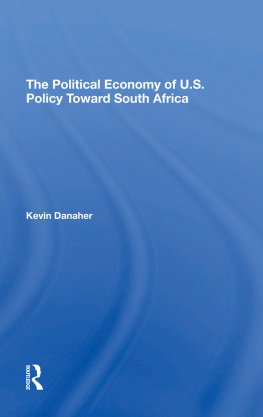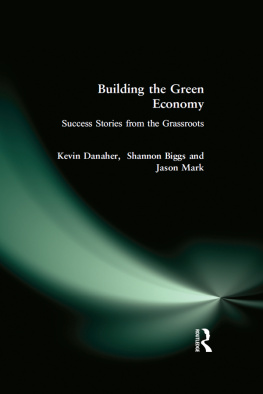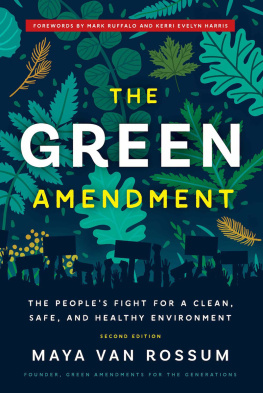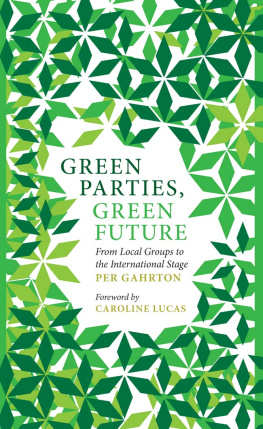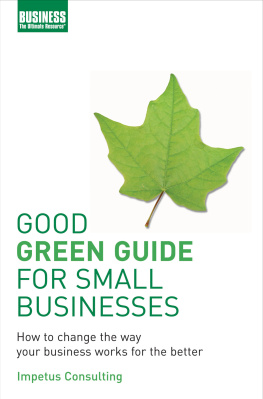The Green Festival Reader: Fresh Ideas from Agents of Change
First published 2008 by Paradigm Publishers
Published 2016 by Routledge
2 Park Square, Milton Park, Abingdon, Oxon OX14 4RN
711 Third Avenue, New York, NY 10017, USA
Routledge is an imprint of the Taylor & Francis Group, an informa business
Copyright 2008 by Kevin Danaher and Alisa Gravitz
All rights reserved. No part of this book may be reprinted or reproduced or utilised in any form or by any electronic, mechanical, or other means, now known or hereafter invented, including photocopying and recording, or in any information storage or retrieval system, without permission in writing from the publishers.
Notice:
Product or corporate names may be trademarks or registered trademarks,
and are used only for identification and explanation without intent to infringe.
Library of Congress Cataloging-in-Publication Data has been applied for.
ISBN 13: 978-0-9794822-8-1 (pbk)
Foreword
A t a White House press briefing on May 7, 2001, Press Secretary Ari Fleischer was asked how the president would address the rising gas prices. Given the amount of energy Americans consume per capita, how much it exceeds any other citizen in any other country in the world, does the president believe we need to correct our lifestyles to address the energy problem? a reporter asked.
Thats a big no, Fleischer replied adamantly. The president believes that it should be the goal of policymakers to protect the American way of life. The American way of life is a blessed one . The president also believes that the American peoples use of energy is a reflection of the strength of our economy, of the way of life that the American people have come to enjoy.
Just months before the fatal attack of September 11, 2001, America was living in a bubble. We celebrated Earth Day once a year, but the rest of the year we consumed to our hearts content. Our blessed way of life was destroying the planet.
The commodity that best embodied this shop til you drop worldview is the Hummer. First produced in 1992, this gas-guzzling, menacing vehicle has been the quintessential symbol of human arrogance against Mother Nature. The Hummers dreadful 10 miles per gallon is less than half the mileage of the Model T Ford some 80 years ago! Hummers emit over three times more carbon dioxide than average cars, hastening global warming. Categorized as light trucks, they were exempt from emission or fuel-efficiency standards.
Hummer owners were also able to take advantage of a tax loophole originally meant to help farmers purchase tractors. The loophole allows tax write-offs for vehicles over 6,000 pounds, up to the cost of the vehicle. So those who bought this insane military-turned-civilian vehicle could get a $100,000 tax break!
Hummers became the ultimate status symbol of manliness. Bodybuilder Arnold Schwarzenegger, credited with promoting the civilian marketing of the military Humvee, had a whole fleet of them. Athletes, rappers, movie stars gobbled them up. By 2002, Hummers were in such demand that customers were waiting months to take delivery and were bidding above the sticker price. U.S. sales reached a peak of 71,524 in 2006.
For environmentalists and antiwar activists, the Hummer was our nemesis, symbolizing not only hyperconsumption but also the glorification of war. At auto shows around the country, our CODEPINK protesters would jump on top of the bright, shiny monsters and drape them in banners that read Real soldiers are dying in their Hummers so you can play soldier in yours. We protested at dealerships; we slapped Hummers with IN VIOLATION OF MOTHER EARTH parking tickets or bumper stickers saying BIG HUMMER, LITTLE D**K; we lobbied Congress to rescind the tax breaks. More radical environmental groups set Hummer dealerships on fire.
It was not the protests, however, but the meteoric rise in gas prices that led to the Hummers demise. By 2008, with gas prices passing $4 a gallon, consumers recoiled at spending $125 to fill their tanks. Celebrities became embarrassed to be seen in their Hummers and jumped on the Prius bandwagon instead. Hummer sales were so miserable that in June 2008, General Motors announced plans for a radical makeover. Were considering all options for the Hummer brand, from a complete revamp of the product lineup to a partial or complete sale of the brand, announced GM CEO Rick Wagoner.
Its not just Hummers that tanked. GM announced it was closing four assembly plants producing SUVs and pickup trucks. After years of polluting the roads with these oversized vehicles, GM said it would focus on smaller, more fuel-efficient cars, including a new plug-in hybrid and an electric car (after they sabotaged their own electric cars in the 1990s!).
The death of the Hummer marks the end of an era when flat-worlders mocked the concept of global warming and peak oil. It marks the end of an era when hyperconsumption was considered the God-given birthright of Americans.
But the old, fossil fuel-based economy will not die a quick death. A dying bull kicks the hardest, and the corporate dinosaurs that live off big oil are trying desperately to keep their stranglehold over our lives.
Automakers continue to drag their feet in producing truly fuel-efficient cars, while trapped consumers must still depend on cars due to the pitiful state of our public transportation system.
Our economy still runs on oil, and big oil continues to pollute the worlds air, land, and water. Oil companies, making record profits, get massive subsidies from Congress, while oil executives buy off candidates with obscene amounts of campaign cash.
Our soldiers are still dying in Iraq so U.S. companies can appropriate Iraqi oil. Our government cozies up to the repressive monarchy in Saudi Arabia, supports drilling and killing in Nigeria, backs a coup against the democratically elected leader of oil-rich Venezuela, and pressures the OPEC drug pusher to pump more and more.
The military-industrial complex still reigns supreme, with more than 700 U.S. military bases around the world representing the old model of domination, militarism, and environmental contamination.
But as we see through this book and the Green Festivals (both co-produced by Global Exchange and Co-op America), the sprouting green economy is bursting through the hard steel shell of the Hummer economy. Communities are demanding bike lanes and reliable public transportation. Consumers are driving less, demanding efficient cars, and using mass transit more. Congress is getting rid of tax codes that favor gas guzzlers, funding research on fuel efficiency, and funding green jobs. The business world is retooling to offer innovative products that conserve energy and provide alternatives to fossil fuels. Cities are competing to see which one can pass the most forward-thinking, green initiatives.



